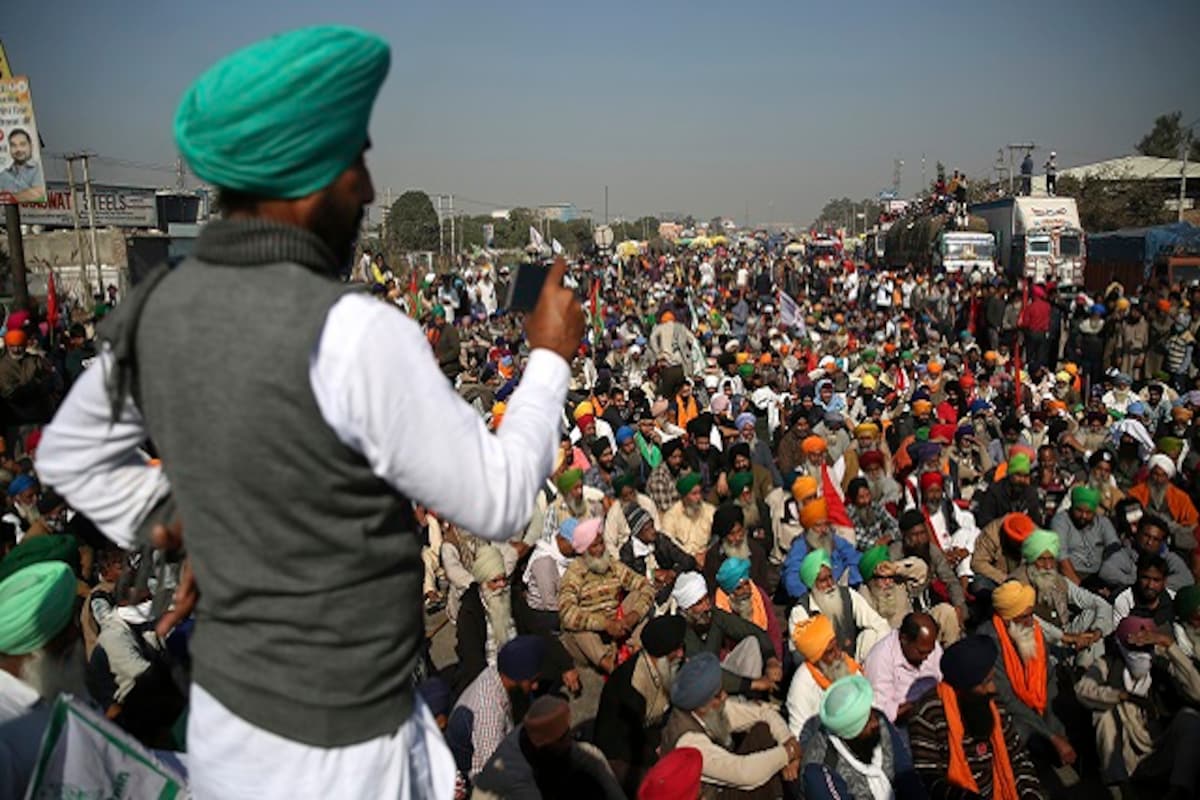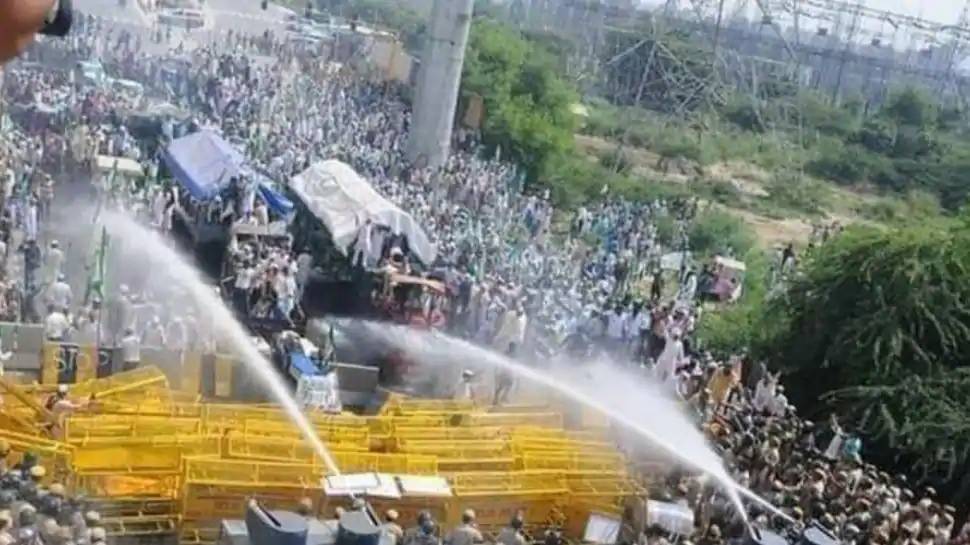Union home minister Amit Shah requested the protesting farmers to carry out protests at Burari on the outskirts of the National capital. This offer has been rejected by the farmers, many of whom are gathered at various sites by the Delhi borders. In this regard, the farmers are set to address media at 4 pm today. The farmers protesting against the central laws are firm on their choice of the protest site. They are headstrong to hold the protest rally at the Jantar Mantar. The protesting farmers are getting on the ground support from the Delhi government, the students, and women. Recently, 70 people were detained while they staged a protest in support of the Delhi Chalo movement of the farmers at the Jantar Mantar site. Out of the 70, many were left-wing students, and members of the Students’ Federation of India, including many women members.
In an effort to normalize the situation, the Home minister had personally called out the leaders- Joginder Singh Ugrahan, the president of the Bharat Kisan Union Ugrahan, Balbir Singh Rajewal, the president of the BKU Rajewal, and Jagjit Singh Dallewal, the president of BKU-Sidhupur.
The home minister’s request was not accepted by the farmers’ leaders stating that when all sections of peoples can protest at Jantar Mantar, then why the farmers cannot do so. In the meantime, the Punjab CM, Captain Amarinder Singh in a press release had stated that talks were in the best interests of the farmers and the nation at large. The Haryana CM had been left embarrassed when the farmers’ groups, a substantial part of which comes from Jat community, a prominent vote-bank, have refused to even talk to him. The Deputy CM, Chautala has remained silent on the farmers’ issue whilst noticing that a significant part of his voter-base, the rural people have jumped into the protest marches and rallies.
The BJP has been trying hard to ward off embarrassment by forming an 8 member panel to hold talks with the farmers. Leader of the panel, Surjit Kumar Jayani had asked the All India Kisan Sangharsh Coordination Committee (AIKSCC) that a 5 member team of the union committee can talk with the 8 member panel. The AIKSCC leader had rejected the offer of the panel, stating that they are not the only union with the demand. Jayani was placed to communicate with the farmers as he had been a cabinet minister in the SAD-BJP government in Punjab.
The farmers have shown an exemplary level of unity when their leaders from Ugrahan and AIKSCC and other unions stated that unless all the farmers’ unions are called for a meeting, none will come to meet. They also have shown solidarity in placing their firm demand that they be allowed to hold rally at Jantar Mantar. The solidarity and unity have been reflected in the statement given by Buta Singh Burjgill, President of BKU(Dakaunda), that all of the 30 farmers’ unions are planning to meet at the Singhu border. Satnam Singh, the president of the KMSC asserted that their jatha of 100 tractors has reached Singhu border and will hold up there and will not go to Burari at any cost. Working committee member of AIKSCC, Jagmohan Singh Patiala, affirmed that the farmers will hold up at the Delhi-border until a common decision is reached by the 30 farmer-unions.
It remains to be seen how the headstrong determination of the farmers takes them towards the destination of protest-jantar mantar.



